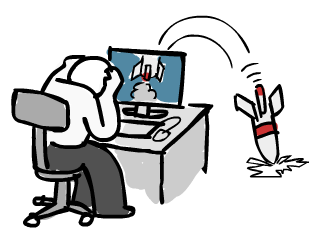 We live at a lake property so we're pretty far in the sticks. We have an HOA, which contracts work for snow removal and stuff like that. Last year we had several snow storms in the Washington DC area. The HOA was not prepared for several snow storms in succession and we found ourselves stranded for 4 days. Yes, 4 days! But, it wasn't all bad. After the first storm got us, I reached out the HOA and recommend they keep the community informed of what was happening. Though we may not see a plow for a day or 2, we would at least know it. Each time we had a storm, the HOA got better at informing us of what they were doing.
Here we are, a year later. The forecast was for 6-12 inches of snow. I was curious if the HOA had refined their communications and snow removal practices from the year before. I kept thinking to myself. People don't plan to fail; they fail to plan.
We live at a lake property so we're pretty far in the sticks. We have an HOA, which contracts work for snow removal and stuff like that. Last year we had several snow storms in the Washington DC area. The HOA was not prepared for several snow storms in succession and we found ourselves stranded for 4 days. Yes, 4 days! But, it wasn't all bad. After the first storm got us, I reached out the HOA and recommend they keep the community informed of what was happening. Though we may not see a plow for a day or 2, we would at least know it. Each time we had a storm, the HOA got better at informing us of what they were doing.
Here we are, a year later. The forecast was for 6-12 inches of snow. I was curious if the HOA had refined their communications and snow removal practices from the year before. I kept thinking to myself. People don't plan to fail; they fail to plan.
We certainly did get the snow. It's close to 12 inches. I left the office early to get home before the snow (thunderstorms) arrived. As the snow stacked higher and higher, we began hearing reports of people abandoning their cars on the roads leading to our house. (They clearly failed to plan accordingly) We even saw one of our neighbors get stuck at the bottom of our hill, blocking the plows from getting to our neighborhood.
So, how did the HOA refine their communications process from last year? Did they fail to plan accordingly? To the contrary, I feel they did a great job. They designated community representatives. We are encouraged to have an open dialog with them. The HOA did send out emails informing everyone when the plows were going to arrive. This year they took it one step further, by creating a feedback loop. When our neighborhood was not plowed, due to the abandoned car, I contacted my community representative. Though I had to leave a voicemail, she called me back within 30 minutes. She assured me our neighborhood will be plowed this afternoon. Without the feedback loop, they would have not known there were any issues. And so, our HOA process improvement continues.
Communications vs. Customer Satisfaction
| Communications Level | Customer Satisfaction |
| 0-Way (None) | Very Unsatisfied |
| 1-Way (Email distribution) | Satisfied |
| 2-Way (Telephone conversation) | Very Satisfied |


